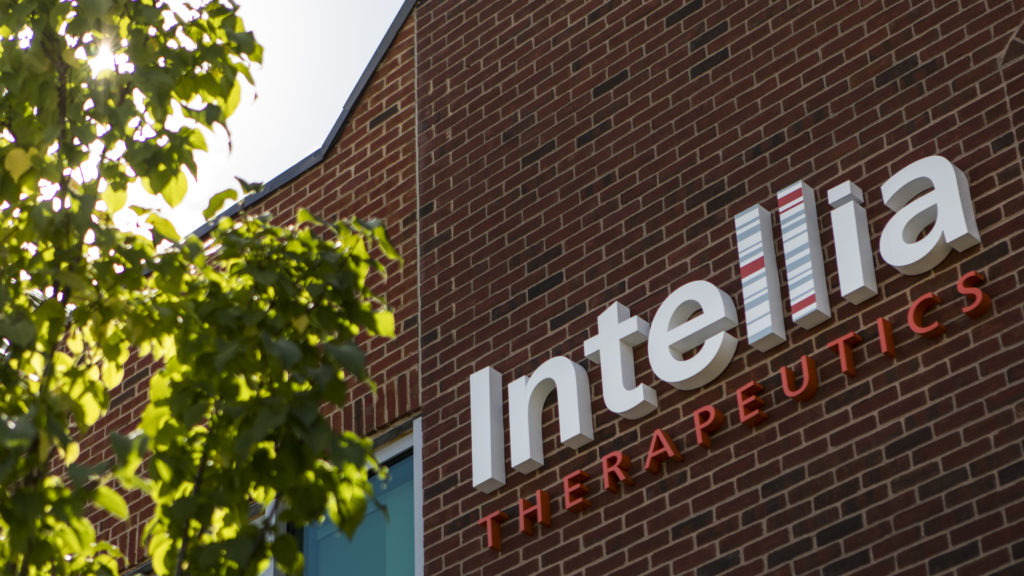Want to stay on top of the science and politics driving biotech today? Sign up to get our biotech newsletter in your inbox.
Good morning. It’s Wednesday, which means it’a also “The Bear” season 3 premiere day. For my Boston readers, know that Ayo Edebiri has been thinking deeply about the tragedy of the Great Molasses Flood of 1919.
advertisement
Onto the biotech news of the day.
The need-to-know this morning
- Lyell Immunopharma, the struggling Rick Klausner-founded CAR-T company, reported two responses but also a patient death in a breast cancer trial.
- Zealand Pharma is raising nearly $1 billion to fund its obesity efforts.
‘Free the founders’ accelerator raises new fund
The biotech startup accelerator Curie.Bio has raised $380 million for a new fund, the organization exclusively told STAT. The money will be invested in biotechs that go through the accelerator and go on to raise a Series A round, though Curie.Bio may occasionally also invest in companies outside the accelerator.
Launched last year by industry veterans Alexis Borisy and Zach Weinberg, Curie.Bio aims to offer an alternative to the traditional ways drug startups are financed, which can leave founders with little say or financial stake in their companies. The accelerator adopted the mantra “free the founders,” which has been plastered on billboards and buses in biotech hubs nationwide.
advertisement
Read more from STAT’s Allison DeAngelis.
Intellia says its CRISPR-based therapy can be redosed
Intellia reported early data yesterday showing that its CRISPR-based therapy that targets a harmful protein called TTR can be redosed. This is the first-ever clinical data showing redosing with an in vivo CRISPR-based therapy, the company said.
The data are from an ongoing Phase 1 study of the therapy, NTLA-2001. Three patients who received redosing experienced a 90% median reduction in serum TTR at 28 days, and it was well-tolerated, Intellia said.
The therapy is currently also in Phase 3 trials for the heart condition ATTR-CM and a rare nerve condition called ATTRv-PN. While redosing is not planned for these studies, the new data show the potential to redose in other disease areas where more than one dose may be needed to reach the desired benefit, the company said.
Investors are closely watching Intellia’s program in ATTR-CM after Alnylam reported positive data on its RNAi treatment earlier this week. Stifel analyst Dae Gon Ha wrote that Alnylam’s results bode well for Intellia, due to similarities in the approaches that aim to stop production of the TTR protein. “The HELIOS-B outcome has done the heavy lifting – by validating RNAi against hard endpoints in ATTR-CM, a CRISPR-based gene knockout should have little reason for a dramatically divergent outcome,” Ha said.
How a Flagship startup is using AI to study cell biology
Cellarity, a startup launched by Flagship Pioneering, is trying to use AI to understand the full biology of cells and find new ways to treat disease. The company views traditional drug discovery as “reductionist,” since it reduces diseases to one or two targets rather than embracing the complexity of cell biology.
With the startup in the middle of raising a Series D, the last round it hopes to raise before going public, STAT’s Brittany Trang sat down with its CEO and one of its head scientists to discuss the company’s approach.
Wegovy will soon be available in a major new market
China has approved Novo Nordisk’s obesity drug Wegovy, opening the drug up to a massive new market. Recent survey data suggest that more than half of Chinese adults are overweight or have obesity, according to a Lancet series.
Novo shares were up yesterday on the news, but as Reuters points out, the company may not maintain a lead on the obesity market in China for long. Novo’s patent on semaglutide, the active ingredient in Wegovy and in the sister diabetes drug Ozempic, is set to expire in less than two years in China, while it has a patent until 2031 in Europe and Japan and until 2032 in the U.S.
It’s also not clear how Novo would handle supplying drugs for such a populous country. Novo (as well as its rival Lilly) have run into recurrent shortages with their GLP-1-based drugs due to the immense demand, even as the companies rapidly ramp up manufacturing capacity.
Home sweet home
If you’ve ever wanted to live in the offices of one of the world’s largest pharmaceutical companies — now is your chance.

KENA BETANCUR/AFP via Getty Images
It turns out Pfizer’s former New York headquarters on 42nd St are being converted into 1,500 apartments in the biggest conversion in the city’s history, according to the Manhattan Borough president.
More reads
- Eli Lilly inks OpenAI deal for discovering new antibiotics, Fierce Biotech
- AbbVie Parkinson’s Drug Rejected by FDA After Plant Inspection, Bloomberg
- Arrowhead shelves one cardiometabolic drug candidate, focuses on another, Endpoints
- Stop allowing MA plans to use AI to deny care without review, lawmakers urge CMS, STAT

